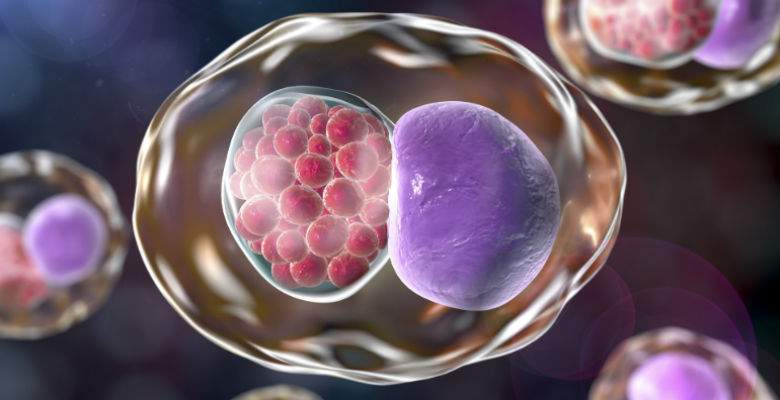What is Responsible For Chlamydia?

Chlamydia always appears on the list of common infectious diseases, soIt’s important to know its causes. But first, we need to know what it is.
So, what’s chlamydia?
This is an infectious disease that is passed on through sexual activities. Anybody can be infected by chlamydia. The good news is that it can be treated. If untreated, it can cause severe complications.
Since chlamydia is a sexually transmitted infection (STI), having unprotected sex (without a condom or other forms of protection) with an infected person can get you infected.
Kindly disregard the myth that chlamydia is spread through kissing. It is not valid.
Chlamydia symptoms
The following symptoms are associated with chlamydia:
- Burning sensation while urinating
- Unusual, foul-smelling vaginal or penile discharge
- An abnormal sore on or around the genitals
- Painful or swollen testicles (could be in one or the two testicles)
- Pain in the rectum
- Bleeding from the vagina between periods
- Pneumonia or eye infection in babies
These symptoms show up weeks after contracting the infection. Again, chlamydia-infected persons may not show any symptoms.
What causes chlamydia?
It is a bacterium known as Chlamydia trachomatis. Other problems caused by this bacterium include:
- Pelvic inflammatory disease (PID)
- Inflammation of the cervix
- Swollen lymph nodes in the groin
- Pneumonia
Chlamydia isn’t passed on via hugs, sharing drinking glasses, or kissing.
But it can be transmitted:
- When you have unprotected anal, oral or vaginal sex with an infected person
- From an infected pregnant mother to her baby
- While having sex with a male partner without a condom, even if ejaculation doesn’t happen
Even if you’ve had chlamydia before and treated it, recurrence is possible. So, contact a doctor at once if you’re having the symptoms.
What could be passed on via kissing?
Chlamydia is not a disease you can get by kissing. However, there are other health issues that kissing can bring via open cuts around the mouth or saliva. They are:
- Common cold and other infectious viral diseases
- Influenza
- Meningitis (brain and spinal cord inflammation)
- Herpes simplex virus (HSV) commonly referred to as cold sore or fever blister
- The Epstein-Barr virus – a common saliva transmitted virus that could result in mononucleosis
- Cytomegalovirus – an asymptomatic virus thatanyone can contract
- Hepatitis B only under the condition of blood exchange from mouth sores or abrasions triggered by bites or trauma
Is chlamydia common?
Yes. In fact, it is the commonest infectious disease prevalent in women below 25 years of age. Statistics show that chlamydia is present in about 1 in 20 women between the ages of 14 to 24 that are sexually active.
Does chlamydia have complications?
When you don’t treat chlamydia the right way, it can cause pain or severe health issues.
For women, untreated chlamydia can move into the fallopian tubes and uterus. The result of this may be non-temporary damage to the reproductive system.
Infertility, problem with conception, and ectopic pregnancy (pregnancy outside the womb) are risks of chlamydia.
Again, untreated chlamydia can increase the risk of having HIV.
It is uncommon for men to experience health issues when infected with chlamydia. Often, pain and fever can be felt if this disease has moved into the tube carrying sperm from the testicles.
In general, men with chlamydia may still have children compared to women with the disease. To get screened for STI, visit a walk in sexual health clinic in London.
Diagnosis and treatment of chlamydia
Usually, it takes 1 to 2 weeks for chlamydia to disappear. At this time, it’s advisable not to have sex as it can be spread.
For signs of chlamydia, your doctor may need to confirm. So, a sample of urine or swab from the vagina may be required for analysis. Should the result come out positive, antibiotics will be prescribed by the doctor.
Your doctor will prescribe a single dose medication or one that will be taken every day for one week. Where you’re given a single dose medication, avoid sexual activity for seven days. If it is a one-week medication, take one week after the last dose before you have sex again.
There are many clinics offer STI testing, you need to be screened three months after the first treatment. So it is advised to ask your doctor before perform.
Preventing chlamydia
Protected or safe sex is the best way to avoid chlamydia from an infected person.
The following tips will keep you safe:
- Use condoms always and in the right way. Men should have latex condom ready. Women should use the polyurethane type. Consult your pharmacist for help with the correct use of condoms.
- Keep your exposure level low by reducing your number of sexual partners.
- Avoid douching as a woman. It contributes to the loss of good bacteria in the vagina, making way for infection to come in.
Get tested regularly for chlamydia as with other STIs. This will help detect, prevent, and treat the infection on time.
According to the CDC, women below the age of 25 should get tested for chlamydia yearly.
How to kiss safely
Since kissing can spread other health conditions, it’s essential to practice safe kissing to remain healthy.
The following tips will guide you:
- Don’t kiss if you or your partner have an open sore
- Do not kiss if you or your partner have cuts inside or around the mouth
- Don’t kiss someone when you are sick, or they are sick
- Avoid biting in a kiss
- Look for other body parts to kiss rather than the lips, for instance, the hands, cheeks or forehead
You don’t have to avoid kissing to prevent infections – you just need to stop kissing for sometime or change your style of kissing when you’re sick. This will reduce the risk of having an infection.
Can kissing cause infection from STIs?
Herpes is the only STI found to be passed on during a kiss. You can visit our walk in sexual health clinic in London STI Clinic for more information.






